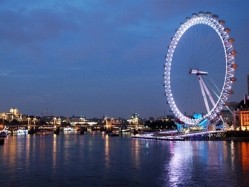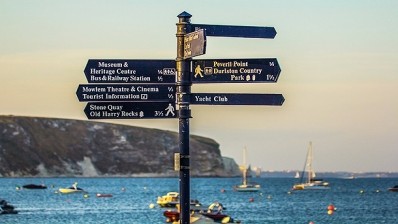Regional tourism must build on London ‘strength’

The company’s report, entitled London and Beyond: Mature and Emerging Markets, coincides with the publication of visitor trends by VisitBritain, which revealed that overseas visits to London grew by 8.6% in 2013, reaching 16.8m – 51.2 per cent of all visits to the UK.
Meanwhile the rest of England saw 13.6m overseas visits (up 6.1 per cent) – representing 41.5 per cent of visits to the country; Scotland received 2.4m visits (up 9.8 per cent) – representing 7.4 per cent of the country’s overseas visits; and Wales had 884,000 visits, up 3.5 per cent and taking a 2.7 per cent share of the national tourism market.
Patricia Yates, Director of Strategy at VisitBritain said: “London is the global superstar of tourism destinations, a city that all around the world people want to visit. Because of this, we need to make sure we are inspiring them on the Britain-wide offering and informing on how easy it is to travel across the country in such a short space of time.
“Encouragingly, we are starting to see results. Edinburgh and Glasgow are now in second and third place behind London for the total number of overseas holiday visitors they welcome, and international spend to the rest of England and Scotland grew by 15 per cent and 20 per cent in 2013 respectively.”
Different perceptions
Olive analysed international travellers’ perception of regional Britain and identified marketing areas to work on in a report called London and Beyond: Mature and Emerging Markets.
Results showed differences between mature markets such as Europe and the US, and emerging markets including Brazil, India and the GCC.
While Norwegian and German visitors see London and Britain as separate entities of (almost) equal interest, most other markets don’t appear to think of Britain as a tourist destination. For some (particularly in the US and France), there is a sense that there is something worth visiting beyond London, but very little knowledge of what it is, and possibly a lack of desire to find out more.
In emerging markets (especially Brazil and the GCC) there is a total lack of awareness of the country’s tourism offer.
But for all the travellers that have not been beyond London, there is a very limited understanding of regions and cities or what there is to see or do there. Scotland stands out as one potential brand with a certain identity, but it is often seen as different from Britain – an entity in its own right.
While emerging markets find the idea of an efficient transport system appealing and do not think of accessibility as an issue, people from the US and France feel like regional Britain is too far away or too expensive to get to, with the added obstacle of driving on the other side of the road.
The country’s weather is mainly a barrier for visitors from the US, France and Brazil - but can be a motivator for those from India and the GCC.
Marketing for target audiences
Olive recommended targeting marketing efforts at emerging markets, which simply lack knowledge on Britain’s tourism offering, as opposed to mature markets which can also lack desire to get information on it. In these markets just spreading information on tourism beyond London should bring benefits, but communication should be considered a priority as the rising middle class is being wooed by many competing destination.
But information and marketing should be tailored for each country: In Brazil and the US, the focus should be on the country’s history and heritage, but with stories that differentiate it from the rest of Europe. References to contemporary popular culture (Beatles, James Bond, Harry Potter) also seem to work well Brazilians.
The Indian public seems to be drawn to the countryside for peace and relaxation and Northern cities. In GCC countries the idea of luxury in the countryside appeals, as well as great outdoors adventure for some young males.
Clean, efficient, and fast train travel should be used as a marketing tool in the emerging markets, while mature markets want more knowledge about the country’s countryside, history and cultural offer.
VisitBritain’s 2013 visitor trend report at a glance
- Overseas visitors spent a record £21.012bn, up 12.7 per cent on 2012
- There were a total of 32.813m visits (an increase of 5.6 per cent)
- Nights were up 6.6 per cent to 245.3m
- Increase in visitors from all nations
- Record number of Holiday visits at 12.726m, an increase of 6.4 per cent, with spending at £8.448bn, up 12.0 per cent.
- Business visits stood at 7.945m, up 7 per cent but down on the 9m achieved in 2006. Business visitor spending by those visiting for Business reached £5.014bn, up 11.4% on 2012.
- Visits to friends and relatives increased by 4.2 per cent to 9.327m and generated £4.524bn in spending in 2013, up 14.6 per cent on the year before.
Check out our gallery of the UK's top 10 most visited cities in 2013.


























